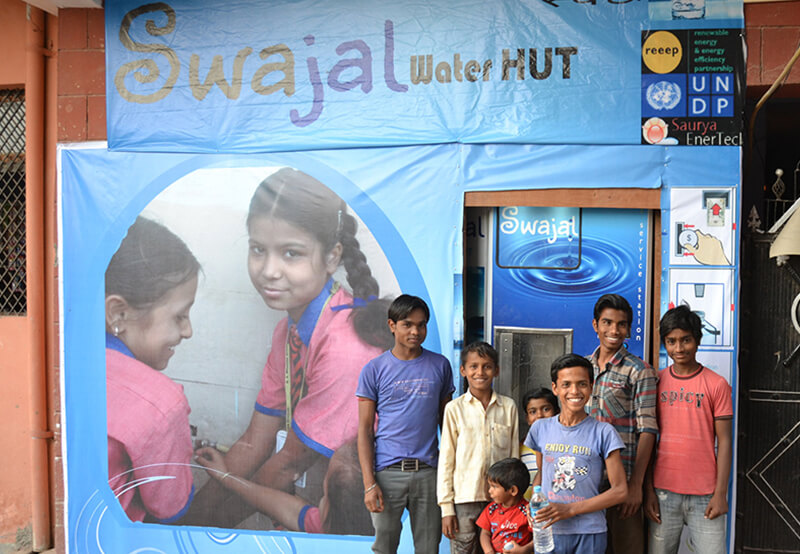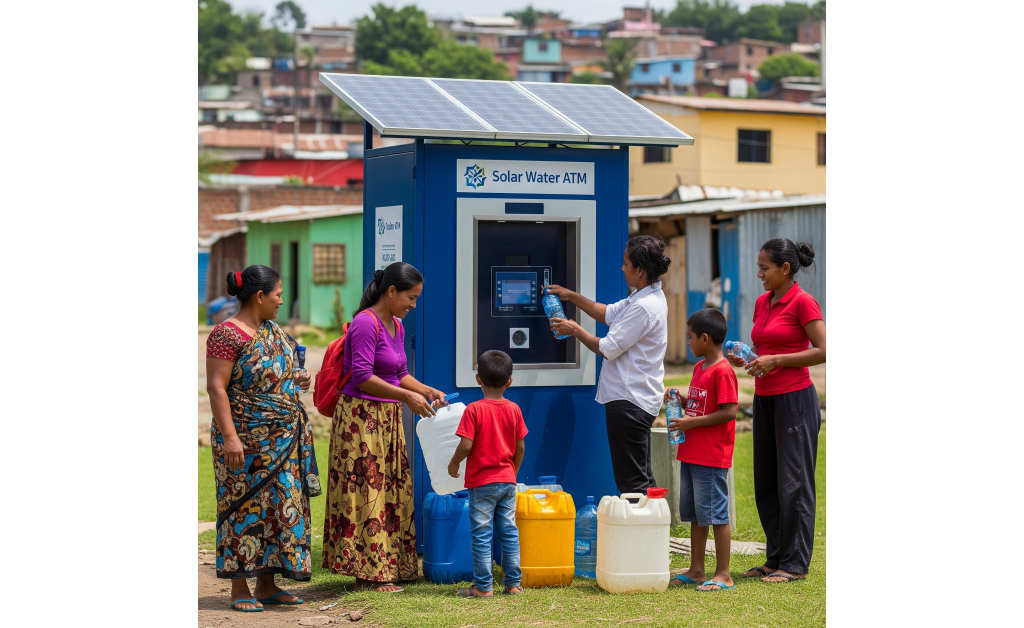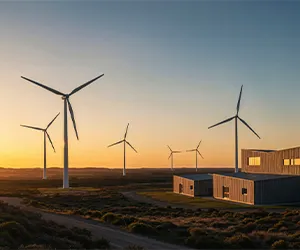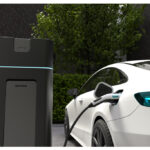How Solar Water ATMs Are Transforming Access to Clean Water
Clean and safe drinking water in India is one major consideration especially in the third world where access to infrastructure and even power is scarce. The existence of traditional water sources has been characterized by pollution that causes water-borne diseases which negatively impact on the health of a community. In response to this pressing issue, innovative solutions like solar-powered water ATMs have emerged, offering sustainable water solutions to underserved communities.

One notable initiative in this realm is spearheaded by Boon, a Gurugram-based water technology startup. Boon has successfully installed over 1,000 solar-powered, AI-enabled water ATMs across more than 100 villages in India, including regions in Punjab, Rajasthan, Uttar Pradesh, Delhi, Madhya Pradesh, and Uttarakhand. These solar water technologies provide clean drinking water at minimal costs, addressing both the scarcity of potable water and the lack of reliable electricity in these areas.
Boon collaborates with local governments, institutions, self-help groups, and NGOs to establish these community water solutions. The cost of setting up a solar-powered water ATM varies between ₹500,000 ($5,737) and ₹1.5 million ($17,212), depending on the system’s capacity and features. These partnerships ensure that the water ATMs are strategically placed in areas of greatest need, such as school compounds and railway stations, thereby maximizing their impact.
The benefits of these clean water initiatives are multifaceted. To begin with, safe drinking water helps abate cases of water borne diseases in the society and hence they are a good source of safe water. An example is in Punjab where purified water fit to drink used to be a luxury in most rural areas. Through installation of twelve water purifiers with Boon in approximately 15 villages, the provision of clean water is actually a reality to many residents.
Second, these water ATMs that run on solar power encourage environmental sustainability. They minimise carbon emissions and lessen reliance on non-renewable energy sources by using solar energy. They also contribute to a cleaner environment by reducing plastic waste by offering an alternative to bottled water.
In addition, economic development in the communities is promoted after the introduction of these water ATMs. It usually uses local entrepreneurs and operators that run day-to-day operations that provide a work place to locals and boost the local economy. The prices of the water supplied are also definitely pocket friendly, as in most cases it is offered at a price of 50 paisa per liter to enable the poor households to have a safe supply of water.
Boon’s initiative is part of a broader movement towards sustainable water solutions in India. Other organizations, such as Piramal Sarvajal, Arosia Water, and Chennai-based Visvak Engineers, have also been leveraging solar water technologies to provide clean drinking water to underserved communities. We have an example of Arosia Water who developed cloud-connected and solar-powered kiosks of water through which safe water can be accessed 24/7. They use IoT in such a kiosk and artificial intelligence allows checking the water quality and health status of the system in real-time.
Such efforts have been successful and therefore are catching the eyes of different government organs. Considering the importance of providing safe-drinking water, Moradabad Smart City has put a proposal on the table of trying to install 25 solar-operated water-ATMs in the city of Moradabad in the state of Uttar Pradesh. This move underscores the growing acknowledgment of solar water technologies as viable solutions to India’s water crisis.
In conclusion, Solar-powered water ATM would be the new approach to the problem of drinking quality water in India; in regard to underprivileged and rural areas. In the process of working on such initiatives, the combination of the use of renewable energy, the engagement of communities around the area where the developments take place and the housing that is affordable enough can leave the community not only with the immediate reimbursements, but also become the basis of the long-term and sustainable growth. The goal of providing everyone in India with access to clean drinking water is getting closer to reality as more towns and cities embrace these community water solutions.
Frequently Asked Questions (FAQs)
A solar-powered water ATM is a dispensing unit that provides clean drinking water, functioning similarly to a bank ATM but delivering water instead of cash. These units are powered entirely by solar energy, making them suitable for areas with limited or unreliable electricity access. Users can obtain water by inserting coins or using rechargeable smart cards, often at a minimal cost.
These water ATMs are equipped with advanced filtration systems that purify the water before dispensing. Technologies such as nanofiltration membranes are used to remove harmful pathogens, viruses, and microplastics, ensuring the water meets safety standards. Additionally, many units feature IoT-enabled and AI-driven monitoring systems that allow for real-time assessment of water quality and system performance.
The installation cost of a solar-powered water ATM varies depending on its capacity and features, typically ranging from ₹500,000 ($5,737) to ₹1.5 million ($17,212). For users, the cost of the water is minimal, often as low as 50 paisa per liter, making it an affordable option for clean drinking water.












